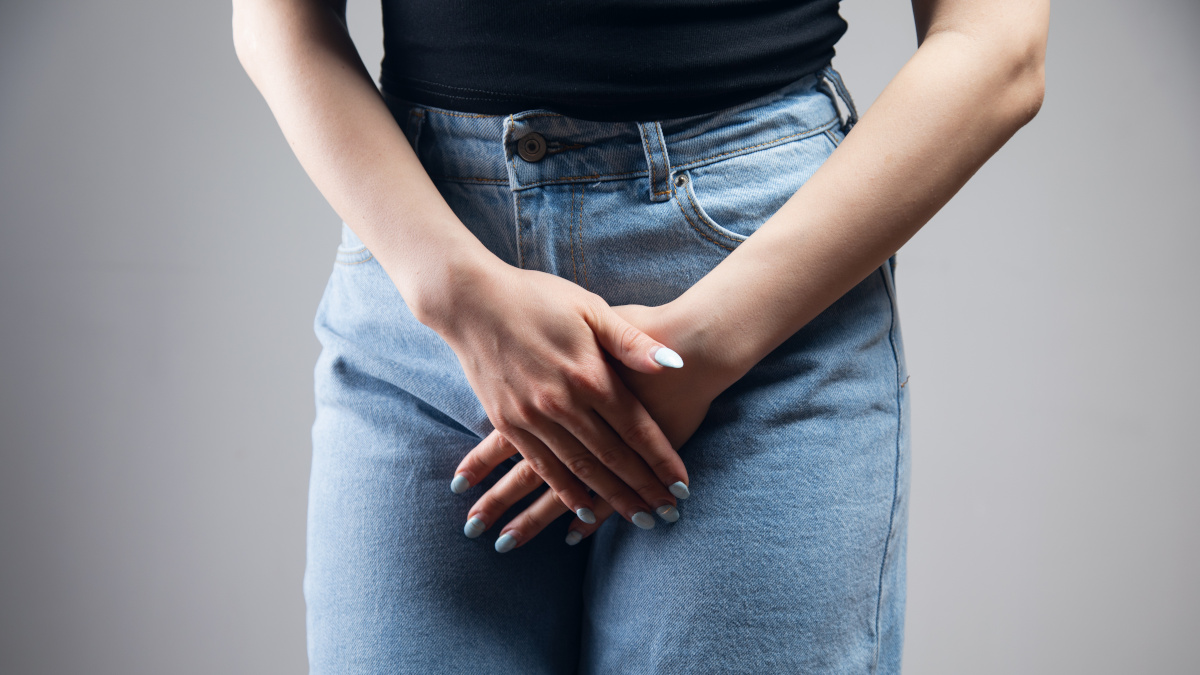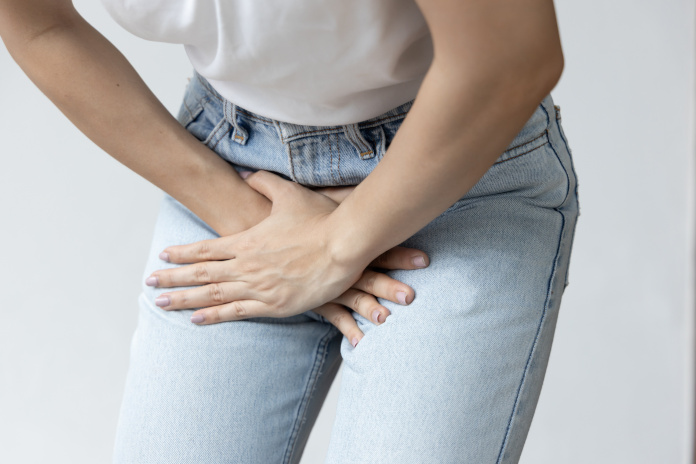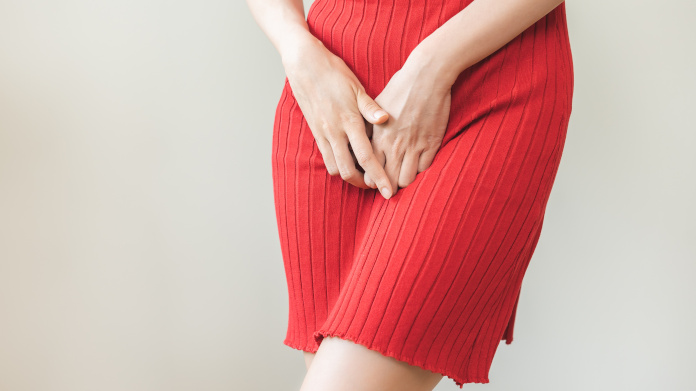Urinary tract infections: 5 natural remedies for cystitis
Though they’re normally nothing to worry about, urinary tract infections can still be painful. Here are 5 natural ways of preventing and relieving them.

Recap: what causes urinary tract infections?
Most of the time, a urinary tract infection (UTI) is just inflammation of the bladder, normally referred to as cystitis. Symptoms include the frequent urge to urinate, a burning sensation when urinating, cloudy, strong-smelling urine and a persistent heaviness in the lower abdomen.
Nine times out of ten, it’s the result of infection by Escherichia coli, bacteria which are normally confined to the gut. Cystitis mainly affects women for reasons of anatomy: the female urethra (the tube that carries urine from the bladder out of the body) is shorter than it is in men, which makes it easier for bacteria to travel to the urinary tract. It’s worth noting that pregnancy, using a diaphragm for contraception, and tampons for sanitary protection, can all promote cystitis (1-2).
A UTI is a broad term for inflammation that affects various elements of the urinary tract. Urethritis, common in men, refers specifically to inflammation of the urethra. Pyelonephritis, a more serious problem, affects the renal pelvis and kidneys, and is one of the fortunately rare complications of cystitis. A high temperature, lower back pain and vomiting are all symptoms that require urgent medical investigation.
While medical advice should be sought in all cases, there are natural measures that can contain or prevent these incapacitating and sometimes recurring infections.
Drink plenty of fluid to flush out germs from the bladder
At the first sign of cystitis, get drinking! The aim is to prevent bacteria from stagnating in the bladder. Staying well-hydrated makes it harder for bacteria to stick to the bladder lining and easier for them to be eliminated via the urinary tract (3). Drink at least 1.5 liters of fluid a day in whichever form you prefer – juice, clear soups, teas …
And it goes without saying you should never ignore the urge to spend a penny
Avoiding constipation to prevent UTIs
What’s the connection between intestinal transit and UTIs? Given that cystitis is often caused by gut bacteria, it’s important that these germs do not linger too long in the anal canal, which is very close to the urinary meatus (external urethral orifice). Avoiding becoming constipated is thus an excellent way of preventing UTIs (4).
For this, you need to increase your intake of dietary fibre by eating more fruit, vegetables, pulses and wholegrains. It’s also important to be more active.
For the same reasons, always wipe from front to back after a bowel movement to prevent bacteria travelling from the rectum to the urethra.
Apply a poultice to relieve lower abdominal pain
How about trying a traditional remedy to obtain some relief? Our grandmothers used to swear by a soothing leek poultice for relieving the pain of lower urinary tract infections.
How do you make one? Cook the leeks in a large pan of salted, boiling water and allow to cool to a lukewarm temperature. Then layer the cooked leeks onto the painful area and leave for at least 15 minutes or until cold. Repeat 3 times day depending on the pain intensity.
Brew diuretic drinks to facilitate urination
Fed up with plain water? Introduce some variety with diuretic infusions! As well as adding subtle flavor to your drinks, they can also relieve troublesome micturition.
High on the list are teas made from artichoke, heather, cherry stem or green tea leaves (5-6). Combine with a soothing honey and thyme hot toddy for its restorative qualities.
Dietary supplements that support the urinary tract
Known rather lyrically as ‘mountain tears’, shilajit (or Asphaltum) is an organic exudate and mineral emanating from India’s high mountain rocks. Used for centuries in many traditional systems of medicine, it helps maintain good urinary function (7). So taking a good quality shilajit supplement makes perfect sense (try Super Shilajit, a purified shilajit formulation standardized to 60% fulvic acids).
Cranberries have been traditionally used by Native Americans, and by doctors since the 19th century, to support urinary health (8-9). These small, tart berries thus feature as the sole ingredient in certain supplements (like Cran Max, a cranberry extract standardized to 7.2% proanthocyanidins) or in synergistic formulations (such as U Tract Forte, an innovative supplement combining cranberry, D-mannose, bromelain, dandelion and hibiscus).
Combatting pathogens means boosting your immune defenses. Some supplements thus combine zinc, which supports normal immune system function, with various plant extracts (such as Complete Uricare, containing, amongst others, extracts of angelica and pumpkin seed) (10).
Though predominantly a female problem, urinary issues can also affect men, most commonly as a result of prostate problems which impede the process of micturition. In such cases, it is a good idea to try:
- saw palmetto, which supports healthy urinary function in cases of enlarged prostate (11) ;
- nettle root, which supports prostate health (12) ;
- pygeum Africanum, which supports the health of the prostate, bladder and lower urinary tract (13).
These three plant extracts are cleverly combined for optimal effect in certain innovative supplements (such as ProstaNatural Formula, a cutting-edge formulation that also contains zinc and beta-sitosterols).
References
- Loh K, Sivalingam N. Urinary tract infections in pregnancy. Malays Fam Physician. 2007 Aug 31;2(2):54-7. PMID: 25606081; PMCID: PMC4170332.
- Foxman B, Frerichs RR. Epidemiology of urinary tract infection: II. Diet, clothing, and urination habits. Am J Public Health. 1985 Nov;75(11):1314-7. doi: 10.2105/ajph.75.11.1314. PMID: 4051067; PMCID: PMC1646695.
- Scott AM, Clark J, Mar CD, Glasziou P. Increased fluid intake to prevent urinary tract infections: systematic review and meta-analysis. Br J Gen Pract. 2020;70(692):e200-e207. Published 2020 Feb 27. doi:10.3399/bjgp20X708125
- Blethyn AJ, Jenkins HR, Roberts R, Verrier Jones K. Radiological evidence of constipation in urinary tract infection. Arch Dis Child. 1995;73(6):534-535. doi:10.1136/adc.73.6.534
- Vučić DM, Petković MR, Rodić-Grabovac BB, Stefanović OD, Vasić SM, Comić LR. In vitro activity of heather [Calluna vulgaris (L.) Hull] extracts on selected urinary tract pathogens. Bosn J Basic Med Sci. 2014;14(4):234-238. Published 2014 Nov 15. doi:10.17305/bjbms.2014.4.40
- Babotă M, Voştinaru O, Păltinean R, et al. Chemical Composition, Diuretic, and Antityrosinase Activity of Traditionally Used Romanian Cerasorum stipites. Front Pharmacol. 2021;12:647947. Published 2021 May 11. doi:10.3389/fphar.2021.647947
- Kloskowski T, Szeliski K, Krzeszowiak K, Fekner Z, Kazimierski Ł, Jundziłł A, Drewa T, Pokrywczyńska M. Mumio (Shilajit) as a potential chemotherapeutic for the urinary bladder cancer treatment. Sci Rep. 2021 Nov 19;11(1):22614. doi: 10.1038/s41598-021-01996-8. PMID: 34799663; PMCID: PMC8604984.
- Jepson RG, Mihaljevic L, Craig J. Cranberries for preventing urinary tract infections. Cochrane Database Syst Rev. 2004;(2):CD001321. doi: 10.1002/14651858.CD001321.pub3. Update in: Cochrane Database Syst Rev. 2008;(1):CD001321. PMID: 15106157.
- González de Llano D, Moreno-Arribas MV, Bartolomé B. Cranberry Polyphenols and Prevention against Urinary Tract Infections: Relevant Considerations. Molecules. 2020;25(15):3523. Published 2020 Aug 1. doi:10.3390/molecules25153523
- Wessels I, Maywald M, Rink L. Zinc as a Gatekeeper of Immune Function. Nutrients. 2017;9(12):1286. Published 2017 Nov 25. doi:10.3390/nu9121286
- Suzuki M, Ito Y, Fujino T, et al. Pharmacological effects of saw palmetto extract in the lower urinary tract. Acta Pharmacol Sin. 2009;30(3):227-281. doi:10.1038/aps.2009.1
- Safarinejad MR. Urtica dioica for treatment of benign prostatic hyperplasia: a prospective, randomized, double-blind, placebo-controlled, crossover study. J Herb Pharmacother. 2005;5(4):1-11. PMID: 16635963.
- Wilt T, Ishani A, Mac Donald R, Rutks I, Stark G. Pygeum africanum for benign prostatic hyperplasia. Cochrane Database Syst Rev. 2002;1998(1):CD001044. doi:10.1002/14651858.CD001044
Keywords
18 Hours
Quick shipping
Quick shipping; good price. No issues!
Mary McCarty
2 Days
Thr product is very good and is helping…
Thr product is very good and is helping me on my health. Then is always on time
LUGO Luz
4 Days
Buying was fine
Buying was fine. I had problems with the website not recognizing my login info, and had to call to get it fixed. Other than that, everything was good.
David S. Clark
5 Days
Your super maca and super ginseng are…phenomenal
Your super maca and super ginseng are phenomenal supplements that compliment each other when taking them together. Fantastic feeling of well-being and lots of mid day energy without the crash.
Keith Mason
7 Days
I have had amazing results with every…
I have had amazing results with every supplement I've purchased. I am extremely satisfied with this company
kirstin Torres
7 Days
Fine products
Fine products . They are on the leading edge of online supplements. The only issue -so far-is they sometime run out of subscription items.
Jason Argos
10 Days
The ordering process is very user…
The ordering process is very user friendly and the products always come in a timely manner.
CARTER Rhonda
11 Days
The price for Dr
The price for Dr. Pero's AC-11 is reasonable and in line with his views. (my former colleague). Keep it pure.
CAMPBELL Clayton
14 Days
Right on every time.
Right on every time.
Arthur Nicholas
17 Days
They are cheaper than everyone else and…
They are cheaper than everyone else and the shipping was fast. Great company.
Patricia Adams
23 Days
Availability of quality health…
Availability of quality health supplements and it's wide variety is impressive. Ordering is seamless and shipping even during the holidays is well streamlined.
Mohamad Hussein
38 Days
A Product worth waiting for when not…
A Product worth waiting for when not available and then arriving as a surprise!
DOMINIC
39 Days
On time shipping
On time shipping
GEORGE Verne
41 Days
Ordering was easy and the product was…
Ordering was easy and the product was delivered with no problems. Appreciated that I was notified when it would arrive. Thanks!
MascarC
47 Days
Great customer service - responsive …
I ordered from them and my item was unavailable for sometime. I was super happy when they reactivated my order and shipped my item which arrived very quickly. Great customer service.
Ruth Rueter



